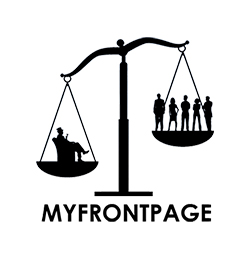Global scientists continue to struggle to develop a treatment for the Coronavirus Disease 2019 (COVID-19) that has already infected over 180,000 and killed more than 7,000 individuals.
Last month, the Department of Human Molecular Genetics and Biochemistry of Sackler Faculty of Medicine in Israel published an observation-based commentary, in medical website PubMed, indicating the possibility that Angiotensin receptor blockers can be used as “tentative therapeutics” for the coronavirus.
“A tentative suggestion based on existing therapeutics, which would likely be resistant to new coronavirus mutations, is to use available angiotensin receptor 1 (AT1R) blockers, such as losartan, as therapeutics for reducing the aggressiveness and mortality from SARS-CoV-2 virus infections,” the researchers said.
Angiotensin II receptor blockers (ARBs), also known as angiotensin II receptor antagonists, or AT1 receptor antagonists, are defined as a group of pharmaceuticals that modulate the renin-angiotensin system. These help in relaxing the human veins and arteries to lower blood pressure and enable the heart to easily pump blood.
In addition, the blockers may also prevent or cure chronic kidney diseases, heart failure and kidney failure in diabetes.
Peter Sever, a Professor of Clinical Pharmacology & Therapeutics at Imperial College in London said: “these drugs could reduce the risk of serious lung disease following infection.”
The Israeli researchers furthered that the angiotensin-converting enzyme 2 (ACE2) serves as the binding site for COVID-19 as it is similar to the strain SARS that hit in early 2000s. Following successful safety tests in animals, they concluded that series of researches and tests shall be conducted to prove its efficiency to treat humans.
On the other hand, Australian scientists rejected the theory saying that the use of Angiotensin receptor blockers could only increase the risk of developing COVID-19 as it changes the shape of human’s cells.
“We suggest that patients with cardiac diseases, hypertension, or diabetes, who are treated with ACE2- increasing drugs, are at higher risk for severe COVID-19 infection and, therefore, should be monitored for ACE2-modulating medications, such as ACE inhibitors or ARBs,” the paper published in the British medical journal The Lancet Respiratory Medicine stated.
These contradictory findings have spurred public concerns especially from patients taking the Angiotensin receptor blockers as medication for high blood pressure, diabetes and the like on whether to discontinue its use in fears of getting infected with the coronavirus.
However, medical experts from Europe and Australia have similarly advised the affected patients to continue using the ACE inhibitors as treatments for their current conditions until further evidence is available.
“There is no proof yet that the use of ACE inhibitors worsen Coronovirus infection. There are theoretical reasons, in fact, why they might offer benefit in serious disease. I would not advocate people ceasing such medication until the evidence has been weighed and clear guidance issued,” said Hugh Montgomery, UCL Professor of Intensive Care Medicine
















